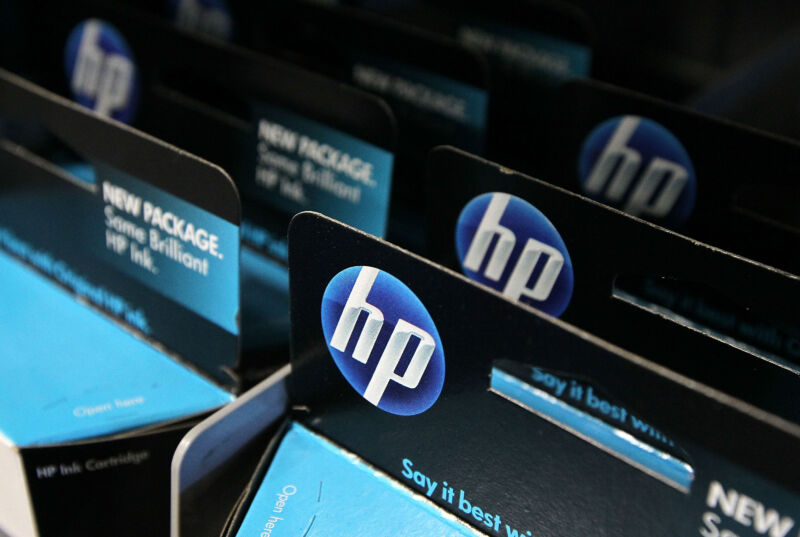
HP continues to pay for abruptly blocking third-party ink from its printers. The company has agreed to pay compensation to additional customers impacted by HP's use of DRM to prevent third-party ink and toner from working in its printers. The settlement pertaining to customers in Belgium, Italy, Spain, and Portugal comes after the company already agreed to a settlement in the US and was fined in Italy.
HP printer owners were annoyed, to say the least, in 2016 when HP introduced Dynamic Security, a firmware update that prevented ink and toner cartridges lacking an HP chip from working in HP printers. Customers who already owned these printers suddenly faced error messages preventing them from printing with cartridges that were fully functioning before. At the time, HP claimed that the move was about helping customers avoid counterfeit and subpar ink and protecting HP's IP. However, it largely felt like a business tactic aimed at protecting one of HP's biggest profit drivers at the time, which was tied to a declining industry.
As reported by Bleeping Computer on Monday, Euroconsumers, a European consumer group, announced on September 7 a settlement with HP that would seek to financially compensate customers located in the aforementioned regions. HP agreed to set up a $1,350,000 (about 1,351,147 euro) for "compensation to certain HP printer owners for losses allegedly suffered as a consequence of being unaware that their printers were enabled with Dynamic Security," according to Euroconsumers' announcement. Individuals can receive 20–95 euros, depending on their printer model and consequences suffered.
Euroconsumers noted that while it alleged that "consumers were not properly informed that Dynamic Security would cause printers to reject certain non-HP replacement ink cartridges," the settlement isn't "an acknowledgment of any fault or wrongdoing by HP nor as an acknowledgment by Euroconsumers of the groundlessness of its claims."
That doesn't mean that HP didn't show poor form by suddenly ripping choice from its own customers. And this isn't the first time it has had to pay for it. Beyond bad publicity, HP reportedly agreed to pay $1.5 million to US customers for the move and about AUD$50 each to Australian customers, and in 2020, the Italian Antitrust Authority fined HP 10,000,000 euros for "misleading and aggressive commercial practices."
Sadly, though, this may be all HP has to pay, as using DRM to thwart third-party ink and toner sales has become common practice in the print industry. When HP faced initial backlash for introducing Dynamic Security, it backtracked via firmware updates that removed Dynamic Security from some printers, as noted by Bleeping Computer. But new printers still have the feature. HP just makes sure to bold the Dynamic Security fine print and place it near the top of the printers' product pages. The vendor also has a dedicated page explaining Dynamic Security.
Beyond customer pain, the additional downsides of this ink-killing scheme were made clearer early this year, perhaps with the help of Lady Karma, when Canon had to instruct customers how to circumnavigate its own DRM warnings after pandemic-related shortages affected its ability to make toners with its chips.
HP didn't disclose such challenges, but amid analysts emphasizing the impact of supply chain constraints, its printer business fell 6 percent to $4.6 billion in Q3 2022.
reader comments
124